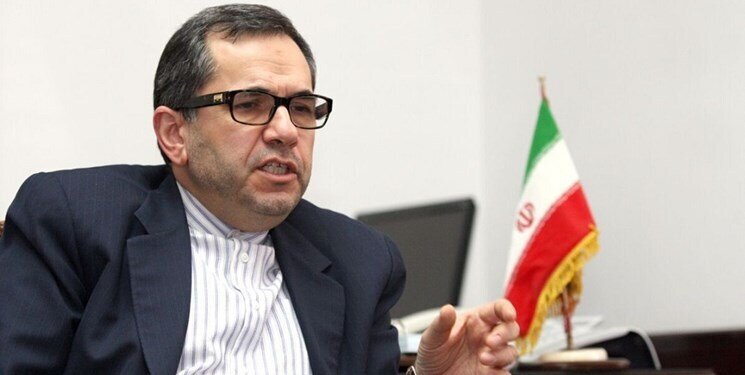Iran has so far sent 30 aid convoy to Afghanistan: envoy

TEHRAN- Iran's permanent representative to the United Nations Majid Takht Ravanchi says the international community should assist Afghans in overcoming obstacles, stressing that the Islamic Republic has so far sent 30 aid convoys to the war-ravaged Central Asian nation.
Takht Ravanchi made the statements on Thursday during a virtual UN donor meeting co-hosted by the United Kingdom, Germany, and Qatar.
“The humanitarian situation in Afghanistan continues to deteriorate, and the country is currently facing great challenges, opportunities, fears and hopes. The international community is expected in the current difficult situation to contribute to helping Afghan people overcome challenges, seize opportunities, dispel fears and boost hopes for a brighter future,” Takht Ravanchi underscored.
“The Islamic Republic of Iran, as a neighboring country, stands by the people of Afghanistan and has used its capacities and facilities to overcome the challenges it has faced over the last four decades,” he added.
According to the senior Iranian diplomat, “Iran has hosted millions of refugees, who have unfortunately received the least international aid in the last 40 years. Iran has dispatched more than 30 shipments of humanitarian aid to Afghan people in recent months. This is just one example of the assistance that Iran has provided to the people of Afghanistan.”
“The financial support of the international community is vital to help Afghanistan surmount the current difficult situation,” Takht Ravanchi underlined.
He also called the seizure of Afghanistan's frozen assets illegitimate and demanded their immediate and unconditional release.
“Hopes for future must be guaranteed among the people of Afghanistan, especially among the younger generation who will lead the country in the future. This will not be possible unless an inclusive government is formed and sufficient attention is paid to the political and social fabrics of Afghanistan, which can involve people from all walks of life, including various ethnicities, men, women and youth,” Takht Ravanchi said.
Afghanistan has been facing serious economic crisis since the Taliban, who controlled the country from 1996 to 2001, retook power on August 15, last year and proclaimed the creation of a caretaker government.
The group's rebirth coincided with the rapid and chaotic withdrawal of American soldiers from the country.
The U.S. and its allies then virtually discontinued financial support to Afghanistan, exacerbating a refugee crisis that has severely impacted Afghanistan's neighbors.
Since the withdrawal of its occupation soldiers, U.S. President Joe Biden's administration has frozen roughly $9.5 billion in Afghan central bank assets.
The International Monetary Fund (IMF) and the World Bank have also paused operations in Afghanistan, withholding funding and $340 million in fresh IMF reserves.
